Proximal Femur Condylus Plate-II Video
Proximal Femur Condylus Plate-II PDF
Proximal Femur Condylus Plate-II Specification
| Product | Pic | Screw | REF. | Spec. |
| Proximal Femur Condylus Plate-II |  | HA 4.5
HB 6.5 | RP2G2PR5H | 5H |
| RP2G2PR6H | 6H |
| RP2G2PR7H | 7H |
| RP2G2PR8H | 8H |
| RP2G2PR9H | 9H |
| RP2G2PR10H | 10H |
| RP2G2PR12H | 12H |
| RP2G2PR14H | 14H |
Advantages of XC Medico's Products
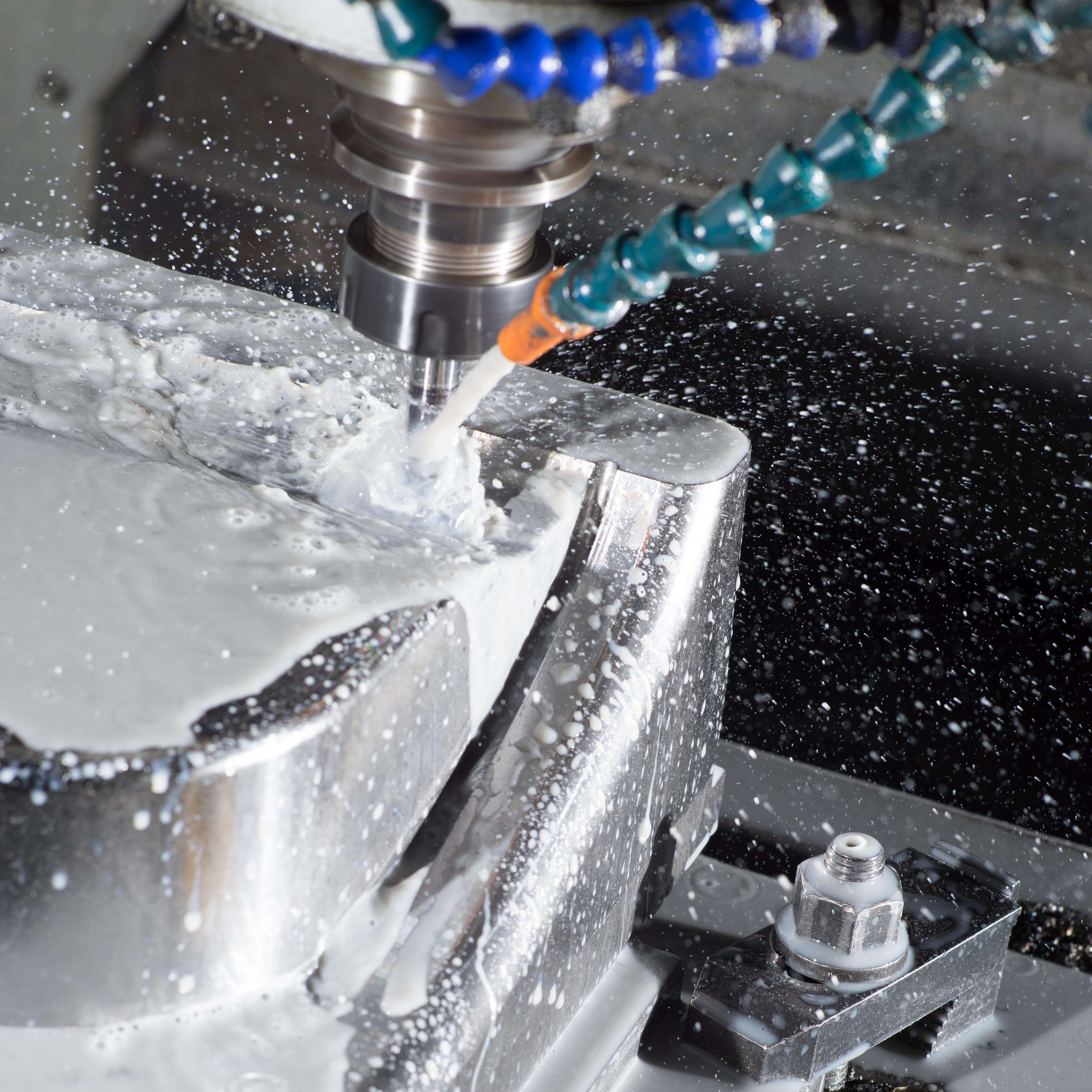
CNC Preliminary Processing
The computer numerical control technology is used to precisely process orthopedic products. This process has the characteristics of high precision, high efficiency, and repeatability. It can quickly produce customized medical devices that conform to the human anatomical structure and provide patients with personalized treatment plans.
| 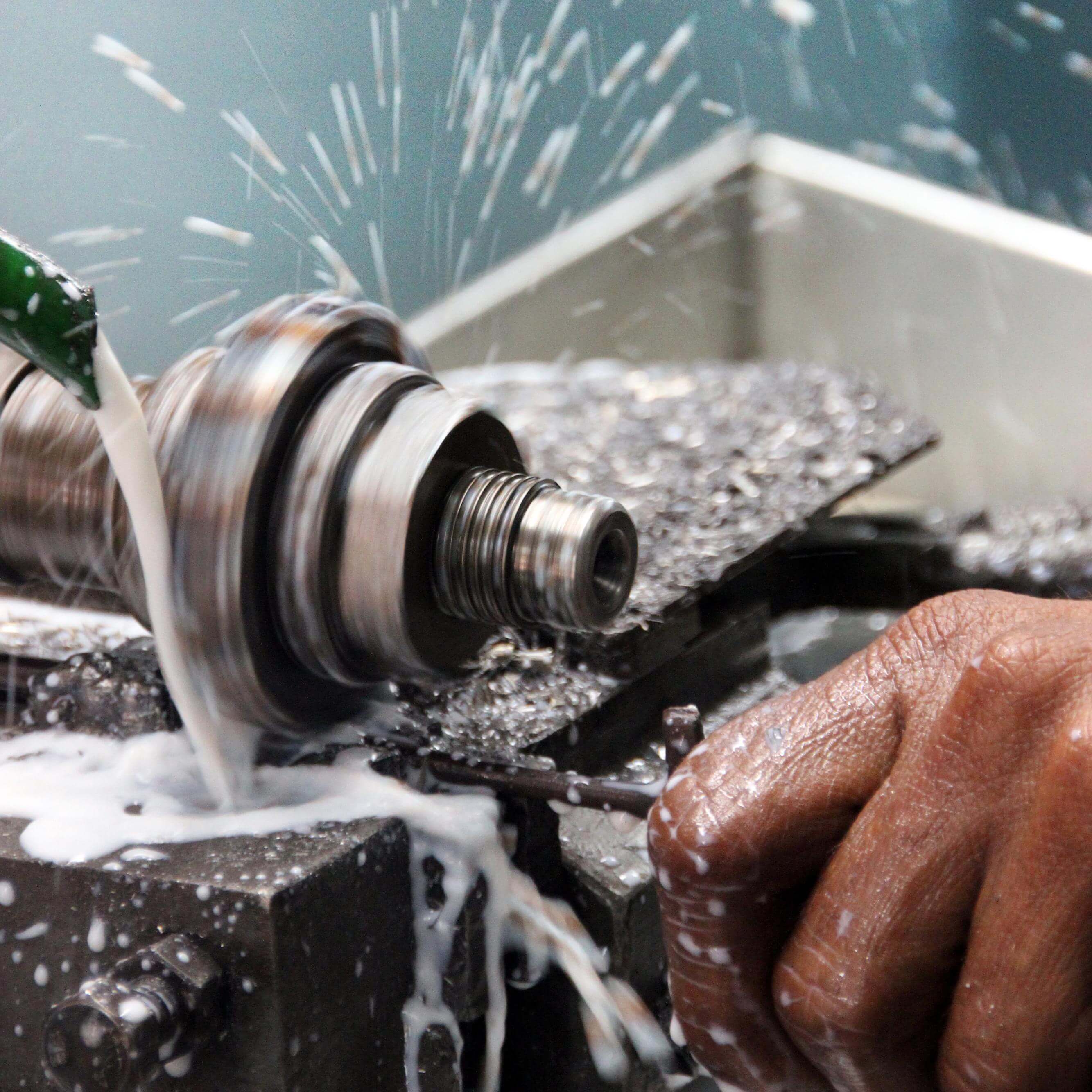
Product Polishing
The purpose of orthopedic products polishing is to improve the contact between the implant and human tissue, reduce stress concentration, and improve the long-term stability of the implant. | 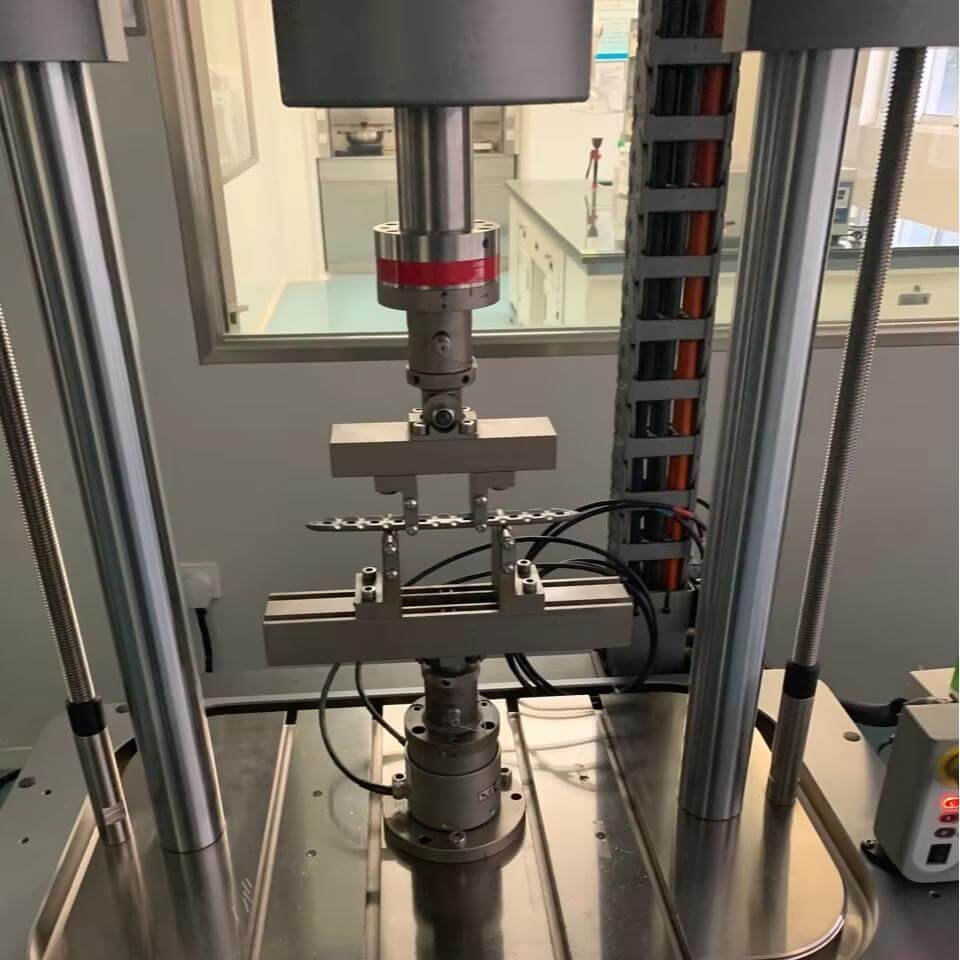
Quality Inspection
The mechanical properties test of orthopedic products is designed to simulate the stress conditions of human bones, evaluate the load-bearing capacity and durability of implants in the human body, and ensure their safety and reliability. |
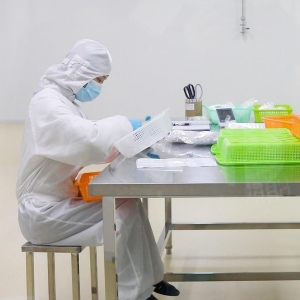
Product Package
Orthopedic products are packaged in a sterile room to ensure that the product is encapsulated in a clean, sterile environment to prevent microbial contamination and ensure surgical safety.
| 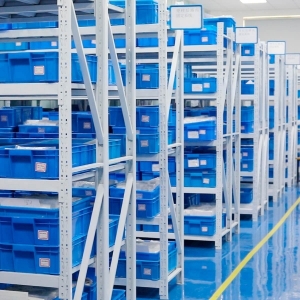 Product Warehouse Product Warehouse
The storage of orthopedic products requires strict in-and-out management and quality control to ensure product traceability and prevent expiration or wrong shipment. | 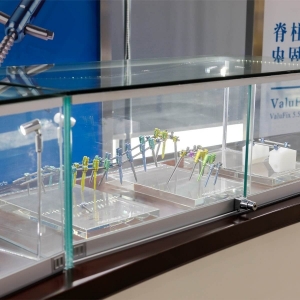 Sample Room Sample Room
The sample room is used to store, display and manage various orthopedic products samples for product technology exchanges and training. |
The Process To Cooperate With XC Medico
1. Ask Xc Medico Team For Proximal Femur Condylus Plate-II Product Catalog.
2. Choose Your Interested Proximal Femur Condylus Plate-II Product.
3. Ask For A Sample To Test Proximal Femur Condylus Plate-II.
4.Make An Order Of XC Medico's Proximal Femur Condylus Plate-II.
5.Become A Dealer Of XC Medico's Proximal Femur Condylus Plate-II.
The Advantages To Be A Dealer Or Wholesaler Of XC Medico
1.Better Purchase Prices Of Proximal Femur Condylus Plate-II.
2.100% The Highest Quality Proximal Femur Condylus Plate-II.
3. Less Ordering Efforts.
4. Price Stability For The Period Of Agreement.
5. Sufficient Proximal Femur Condylus Plate-II.
6. Quick And Easy Assessment Of XC Medico's Proximal Femur Condylus Plate-II.
7. A Globally Recognized Brand - XC Medico.
8. Fast Access Time To XC Medico Sales Team.
9. Additional Quality Test By XC Medico Team.
10. Track Your XC Medico Order From Start To Finish.
Proximal Femur Condylus Plate-II: A Comprehensive Guide
The Proximal Femur Condylus Plate-II is an advanced orthopedic implant designed specifically for the fixation of fractures in the proximal femur, particularly around the condylar region. It is widely used in complex fractures, including those occurring in high-energy trauma cases, and aims to provide stable fixation, promote healing, and restore function. In this comprehensive guide, we will explore the features, advantages, treatment applications, risks, and future trends related to the Proximal Femur Condylus Plate-II, shedding light on why it is an essential device in modern orthopedic trauma management.
What is Proximal Femur Condylus Plate-II?
The Proximal Femur Condylus Plate-II is an innovative orthopedic implant designed for the fixation of fractures involving the proximal femoral condyle. This region is located near the hip joint and is crucial for bearing body weight and facilitating mobility. Proximal femoral fractures can involve a variety of complex patterns, including intertrochanteric, subtrochanteric, and condylar fractures, making their management challenging.
The Proximal Femur Condylus Plate-II is used to stabilize these fractures, providing optimal alignment of bone fragments during the healing process. The plate is typically made from high-strength materials such as titanium alloys or stainless steel, ensuring that it can withstand the significant mechanical loads placed on the femur during movement and weight-bearing activities. The second generation of this implant (Proximal Femur Condylus Plate-II) features enhancements such as improved screw fixation, anatomical design, and better load distribution to aid in faster recovery and enhanced long-term function.
Proximal Femur Condylus Plate-II Features
Anatomical Contour
The plate is designed to match the natural curvature of the proximal femur, facilitating a precise fit and minimizing the risk of implant failure or misalignment.
Multiple Screw Holes
The plate features multiple screw holes, allowing for the secure placement of screws at optimal angles. This enables efficient fixation and improved stability for a variety of fracture types.
Locking Mechanism
The incorporation of a locking mechanism in the screw holes prevents screw loosening over time, ensuring that the fracture remains stable throughout the healing process. This is particularly important in patients with osteoporotic bone.
Biocompatible Materials
The use of titanium and stainless steel ensures that the plate is durable, resistant to corrosion, and compatible with human tissue, minimizing the risk of allergic reactions or implant rejection.
Low Profile Design
The plate is designed to be as low-profile as possible, reducing soft tissue irritation and the risk of complications like infection or discomfort during post-operative recovery.
Advanced Locking Screws
The Proximal Femur Condylus Plate-II utilizes self-tapping locking screws that provide superior grip and strength, which is particularly important in cases involving poor bone quality or fractures in osteoporotic patients.
Proximal Femur Condylus Plate-II Advantages
Enhanced Stability and Alignment
The anatomical design of the plate, along with multiple screw fixation options, ensures that the bone fragments remain aligned and stable during the healing process, improving fracture union rates.
Minimized Risk of Complications
The locking screw system significantly reduces the risk of screw loosening, which can lead to implant failure or secondary procedures.
Optimal Healing Conditions
By providing secure fixation, the plate supports the natural healing process, reducing the risk of non-union, malunion, or delayed healing.
Versatility for Different Fracture Types
Whether the fracture is simple or comminuted, the Proximal Femur Condylus Plate-II can be adapted to provide effective fixation for a wide variety of fracture patterns.
Reduced Surgical Trauma
The low-profile design allows for minimal soft tissue dissection during implantation, reducing surgical trauma and potentially shortening recovery times.
Improved Patient Outcomes
The stability provided by the Proximal Femur Condylus Plate-II enables earlier mobilization of the patient, potentially leading to faster rehabilitation and improved functional outcomes.
Proximal Femur Condylus Plate-II Treatment of Fracture Types
Comminuted Fractures
Complex fractures where the femur breaks into multiple fragments. The plate ensures that these fragments are held together securely, improving the chances of proper bone healing.
Supracondylar Fractures
Occurring just above the femoral condyles, these fractures often require precise alignment to restore the normal function of the knee and hip joints. The plate provides the necessary stabilization to promote healing.
Intertrochanteric Fractures
Fractures between the greater and lesser trochanters of the femur, which are common in elderly patients due to falls. The Proximal Femur Condylus Plate-II offers strong fixation for these fractures.
Periprosthetic Fractures
Fractures that occur around hip replacement implants, which can be particularly challenging to manage. The Proximal Femur Condylus Plate-II can help stabilize these fractures and maintain joint function.
Subtrochanteric Fractures
Fractures located just below the trochanteric region of the femur. These fractures often require stable fixation to allow for proper healing and rehabilitation.
Risks of Proximal Femur Condylus Plate-II Surgery
Infection
As with any surgical procedure, there is a risk of infection at the incision site or around the implant. Adhering to sterile techniques and ensuring proper post-operative care can help minimize this risk.
Non-union or Malunion
Despite secure fixation, there is always a possibility that the bone may not heal properly or may heal in an incorrect alignment, leading to non-union or malunion.
Implant Failure
In cases where the fracture does not heal as expected or if the implant is subjected to excessive mechanical stress, the screws or the plate may fail.
Nerve or Vascular Injury
Proximal femoral fractures are close to major blood vessels and nerves, and surgery carries a small risk of damaging these structures.
Soft Tissue Damage
There is a risk of damage to surrounding muscles, tendons, or ligaments during the surgical procedure, which may lead to prolonged recovery or functional impairment.
Proximal Femur Condylus Plate-II Future Marke
Aging Population
As the global population continues to age, the incidence of hip and femoral fractures is expected to rise, driving demand for effective orthopedic solutions like the Proximal Femur Condylus Plate-II.
Technological Advancements
Ongoing developments in materials science and surgical techniques will likely lead to even more effective and innovative versions of this implant, with features such as improved biointegration and enhanced mechanical properties.
Minimally Invasive Approaches
As minimally invasive surgical techniques continue to evolve, there will be increased demand for implants that can be successfully used in these procedures, making the Proximal Femur Condylus Plate-II an attractive option.
Emerging Markets
The growth of healthcare infrastructure in developing countries presents an opportunity for the widespread adoption of advanced orthopedic devices like the Proximal Femur Condylus Plate-II.
Summary
The Proximal Femur Condylus Plate-II is a critical orthopedic implant used for stabilizing fractures of the proximal femur, particularly in the condylar region. Its advanced features, such as an anatomical design, locking screw system, and biocompatible materials, provide superior stability and improved healing conditions for a variety of fracture types. While there are risks associated with its use, including infection and implant failure, proper surgical technique and post-operative care can significantly reduce these risks.
The future of the Proximal Femur Condylus Plate-II looks bright, driven by the growing demand for orthopedic implants due to an aging population and technological advancements. Overall, the Proximal Femur Condylus Plate-II represents an essential tool in orthopedic trauma surgery, offering a reliable and effective solution for femoral fractures and contributing to better patient outcomes.
Warm reminder: This article is for reference only and cannot replace the doctor's professional advice. If you have any questions, please consult your attending physician.
English
Русский
简体中文
繁體中文
العربية
Français
Español
Português
Deutsch
italiano
日本語
한국어
Nederlands
Tiếng Việt
ไทย
Polski
Türkçe
አማርኛ
ພາສາລາວ
ភាសាខ្មែរ
Bahasa Melayu
ဗမာစာ
தமிழ்
Filipino
Bahasa Indonesia
magyar
Română
Čeština
Монгол
қазақ
Српски
हिन्दी
فارسی
Kiswahili
Slovenčina
Slovenščina
Norsk
Svenska
українська
Ελληνικά
Suomi
Հայերեն
עברית
Latine
Dansk
اردو
Shqip
বাংলা
Hrvatski
Afrikaans
Gaeilge
Eesti keel
Māori
සිංහල
नेपाली
Oʻzbekcha
latviešu
অসমীয়া
Aymara
Azərbaycan dili
Bamanankan
Euskara
Беларуская мова
भोजपुरी
Bosanski
Български
Català
Cebuano
Corsu
ދިވެހި
डोग्रिड ने दी
Esperanto
Eʋegbe
Frysk
Galego
ქართული
guarani
ગુજરાતી
Kreyòl ayisyen
Hausa
ʻŌlelo Hawaiʻi
Hmoob
íslenska
Igbo
Ilocano
Basa Jawa
ಕನ್ನಡ
Kinyarwanda
गोंगेन हें नांव
Krio we dɛn kɔl Krio
Kurdî
Kurdî
Кыргызча
Lingala
Lietuvių
Oluganda
Lëtzebuergesch
Македонски
मैथिली
Malagasy
മലയാളം
Malti
मराठी
ꯃꯦꯇꯥꯏ (ꯃꯅꯤꯄꯨꯔꯤ) ꯴.
Mizo tawng
Chichewa
ଓଡ଼ିଆ
Afaan Oromoo
پښتو
ਪੰਜਾਬੀ
Runasimi
Gagana Samoa
संस्कृत
Gaelo Albannach
Sepeti
Sesotho
chiShona
سنڌي
Soomaali
Basa Sunda
Wikang Tagalog
Тоҷикӣ
Татарча
తెలుగు
ትግንያውያን
Xitsonga
Türkmençe
संस्कृत
ئۇيغۇرچە
Cymraeg
isiXhosa
ייִדיש
Yorùbá
isiZulu

















 Product Warehouse
Product Warehouse Sample Room
Sample Room




















